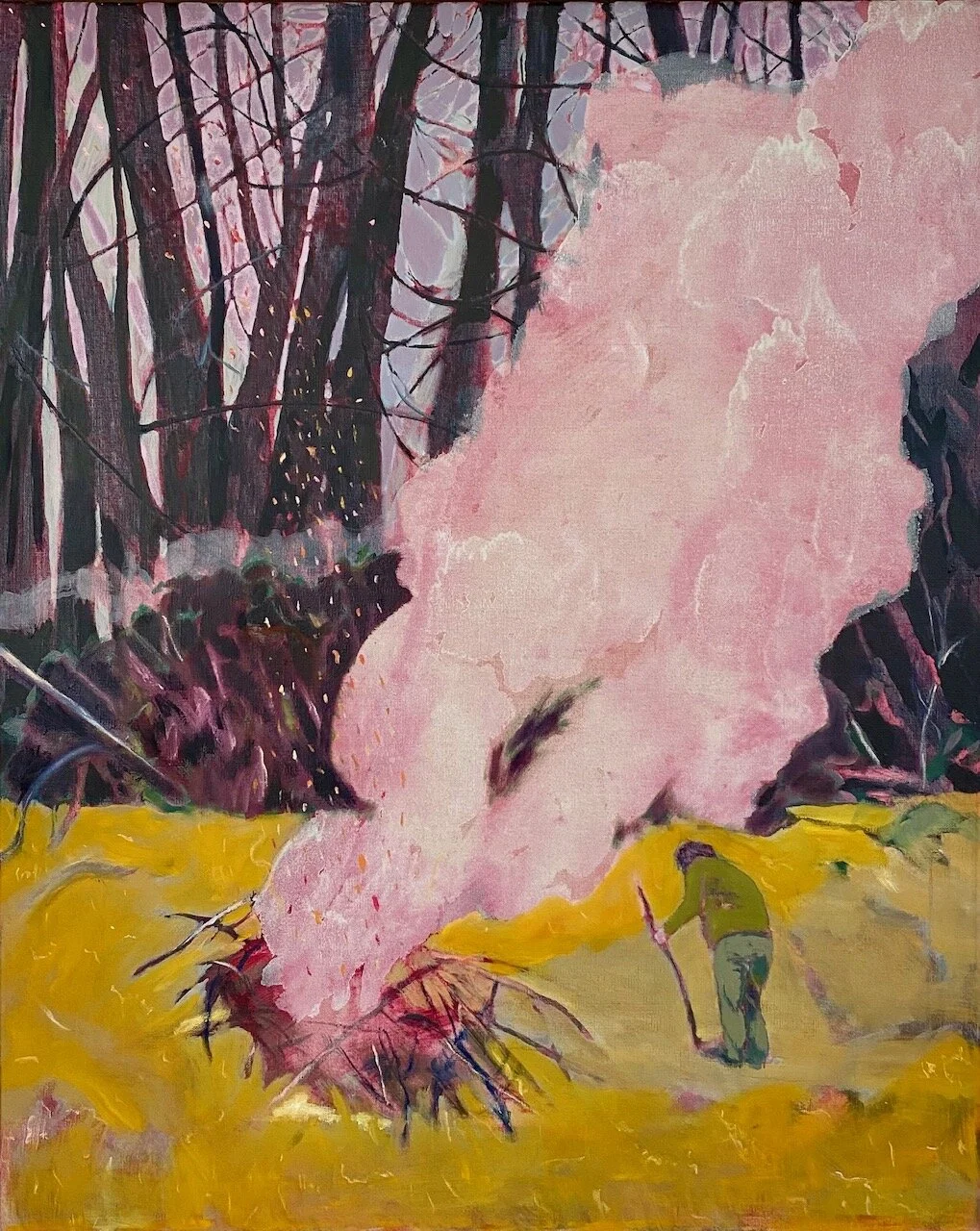Ben Crawford


Southern Queensland, Australia
Website:
www.bencrawfordart.com
Social Media:
Instagram
How would you describe your work?
My paintings are figurative in nature. I love colour and the abstract quality of paint and try to combine these elements with literary references and autobiographical narratives. I often describe my paintings as vignettes, telling little stories which hopefully resonate in a meaningful way with the viewer.
What inspires you?
I think most visual artists function in a similar way. I’m constantly gathering imagery as potential source material for paintings. Throughout the day, shapes and colours and textures saturate my brain and that information makes its way on to the canvas, perhaps even in a subliminal manner. Themes I return to often seem to be quite autobiographical: memories, dreams, thoughts about my life. Looking at the work of other artists is also something I find inspirational. Then there’s my children. They have so much freedom and their world view is so open and innocent.
Can you speak about your process?
Often, my paintings start off with the conceptual part first. I’ll be thinking of a memory or a story I want to paint about and then start finding reference material that relates to those ideas. Next I’ll make up a digital collage to use as a springboard for the composition of the painting. The basic composition is then sketched out on a prepared canvas (I love working on fine linen, which I’ve prepped with a washy acrylic ground colour). Then it’s a matter of blocking in colour and working with the paint, using any happy accidents or the abstract quality of the paint to inform my decision making. For the top layers of paint I work with oil based paint and oil sticks. In the past I’ve incorporated collage into my paintings using found fabric and patterned paper. I’m also open to using transfer techniques and projecting images onto the canvas if the painting calls for it. Over the past few years I’ve tended to approach the painting process more organically and try not to have too strict a plan for the finished piece.
How did you become interested in art?
My parents are very artistic people and encouraged me from an early age. It was one of the few things at school I was ok at, so I think it was a natural progression to go on to study art at university. It’s a bit of a cliche, but as a form of expression it helps me communicate ideas and thoughts that I struggle to put into writing or even talk about.
Do you have any favorite artists, movies or books?
I have lots of favourite artists. To name but a few: Patrick Heron, Joan Mitchell, Peter Lanyon, Edvard Munch, Mark Rothko, Richard Diebenkorn, Jessica Stockholder, Fairfield Porter, Miranda Skoczek, David Hockney, Peter Doig, Adam Lee, Amber Wallis, R B Kitaj.... so many more!
I never get sick of watching the Indiana Jones movies (except the fourth one!). In fact a lot of the movies I still go back to are from my childhood: The Goonies, Princess Bride, Back to the Future. I also love Wes Anderson films and twisty turny espionage thrillers!
Books-wise, I love Raymond Chandler, John Steinbeck, Kurt Vonnegut and Haruki Murakami. Plus I love perusing my big art monographs.
What advice do you have for younger artists?
Where to begin? Something I’ve taken to heart, which I think applies to any artist at any stage of their career, is to focus on your art practice and enjoy it. Whether you want to work with galleries or apply for grants or sell your work online or whatever, at the end of the day the main reason you should be making art is for yourself and for what you’re trying to communicate with your art. Try to refine your art practice for its own sake and not make work to cater for someone else’s tastes or ideas. Also I think the same work principles apply to being an artist as to any other job: work hard, turn up on time, be a pleasant person to deal with and be humble enough to take advice from others.
Is there anything else you would like to share?
Painting can be very frustrating at times, but the challenges are extremely rewarding too. So many times art critics have fallen out of love with painting and it has even been declared ‘dead’ by some. But as a medium it always finds a new generation to enchant and give a voice to. For me, I have never had a dull day in the studio or a moment when I’m painting wishing I was doing something else. If I never sold another painting in my life I would still make the time to do it because it makes me so happy.










